Log in to Markel
- US Broker Agent

US customer login
Log in to make a payment, view policy documents, download proof of insurance, change your communication and billing preferences, and more.
Log in to access admitted lines for workers compensation, business owners, miscellaneous errors and omissions, accident medical, general liability, commercial property, farm property, and equine mortality.
Markel Online
Log in to access non-admitted lines for contract binding property & casualty, excess, and commercial pollution liability.
MAGIC Personal Lines portal
Log in to access personal lines products including marine, specialty personal property, powersports, bicycle, and event insurance.
Markel Surety
Log in to access Markel's surety products.
- News and press

Yacht insurance

The marine insurance leader for over 45 years.
Find a Markel marine agent and get a free, no-obligation quote today.
If you love your yacht, you’ll love our insurance.
We’ve been the yacht insurance leader for over 45 years because we provide coverages that fit your yacht and your lifestyle. Markel yacht insurance can offer distinct advantages in coverage features, options, knowledge and experience.
Why do you need yacht insurance?
Whether you own a yacht or a houseboat, we understand it’s not a typical boat and shouldn’t be covered by a typical boat insurance policy. That’s where we come in—each Markel yacht insurance policy can be customized to fit your yacht, your needs, your budget and your style.
Still not sure?
Here’s a few of the potential advantages to insuring your yacht with us:.
More complete coverage than any other carrier at no additional cost.
Experienced yacht underwriters and marine claims specialists who provide prompt, responsive service.
Discounts and cost-effective coverage options to save you money.
Flexible payment options.
Save money by customizing your yacht insurance
Actual cash value coverage (ACV) Reduce your coverage to ACV, which factors in depreciation of your yacht should you have to file a claim.
Lay-up option We’ll discount your yacht insurance premium during the winter months when your yacht is not in use.
Higher deductibles If you can manage minor repairs to your boat on your own, selecting a higher deductible will reduce your premium.
Windstorm exclusion Live in an area that isn’t at risk for a hurricane? You may consider removing windstorm coverage from your policy.
Liability only Coverage in case you damage another yacht and/or person (doesn’t require a survey—even for older boats).
What we offer
We offer coverage for a variety of watercrafts over 26 feet in length, including:.
- Sport fishing boat
Our coverages can include:
- Coverage for your yacht
- Coverage for you
- Optional coverages
Hull and equipment insurance protection including:
- Protect and recover can cover reasonable costs incurred when trying to protect your yacht from further damage after an accident
- Consequential damage for non-wood yachts–normal wear and tear and deterioration is not typically covered under a yacht insurance policy. However, if your yacht suffers damage from fire, explosion, sinking or collision because of one of these conditions, you may be protected
- Ice and freezing damage coverage if you contracted with a commercial marina or repair facility
- Agreed value for total loss
- Deductible waived on most total losses
- No depreciation on most partial losses
- Automatic tender coverage
Windstorm extra expense If there is a named storm, watch or warning, we will share the expense with you to help protect your yacht before the storm makes landfall.
Personal effects coverage For all the “extras” you physically bring onto your yacht. (i.e., smart phone, camera, etc.)
Emergency towing and assistance Coverage for towing expenses if your yacht happens to get stuck in or out of the water, including the delivery of gas, oil and parts.
Rental reimbursement coverage Coverage for when your yacht is being repaired from a covered loss.
Uninsured boater Unfortunately, not all boaters on the water have insurance. This coverage helps protect you and your family members if you are injured in an accident caused by an uninsured boater. Coverage is automatically included if watercraft liability is purchased.
Pollution liability Pollution coverage helps protects you if you are held legally liable due to an oil pollution leak or spill.
Medical payments Coverage for injuries suffered during an accident on your yacht.
Paid crew (Jones Act) Protection for you if you are legally responsible for injuries to a paid captain or crew member while on your yacht.
Protection and indemnity Coverage in the event that you are responsible for injuries to another person, or damage to their boat or property. Wreck removal is included with purchase of hull coverage.
- Boat trailer coverage
- Boat lift and boat house coverage
- Fishing tournament reimbursement for fishing boats
- Fishing equipment protection
- Transit and storage coverage
- Trip coverage
- Trip interruption reimbursement
- Personal liability coverage if you live aboard your yacht
Frequently asked questions about yacht insurance
General questions.
How much coverage do I need? Each boat, person, location and situation is different. There isn't a good way to give a "ballpark" figure for how much coverage you need. It’s best to evaluate your comfortable level of risk when protecting your boat, assets and passengers. Your best option is to call our boat specialists at +1.800.236.2453 to discuss the best coverage for you.
Can I insure my yacht for liability only? Yes, we offer protection and indemnity (liability only) coverage to help protect you in case you are responsible for injuries to another person or damage to another boat or property. Many carriers do not offer liability-only policies for yachts, or if they do, require a survey. However, Markel’s protection and indemnity coverage does not require a survey, so you’re able to do what you love without worries out on the water.
Will my policy cover normal wear and tear of my yacht? Most insurance policies will not cover normal wear and tear of your yacht and the deterioration or the resulting damage. However, if your yacht is damaged from fire, explosion, sinking, collision or stranding, you may be protected under our consequential damage coverage.
Can I use my yacht for chartering? We know that sometimes yacht owners charter their yacht for sightseeing tours or even sport fishing to help offset some of the costs of owning a yacht. Markel offers an optional limited charter coverage for these situations provided the captain of the watercraft has a minimum of 2 years loss-free experience of yachting. Additional restrictions may apply.
I live on my yacht. Am I covered? Markel provides live aboard coverage. Be sure to disclose that you live aboard to your agent.
My yacht is in a corporation's name. Can I still insure it with Markel? Our yacht insurance policy can cover corporately titled boats for both personal use and client entertainment. We do require all corporately titled boats designate a designee of the watercraft. Contact your agent to learn more.
Do I need to insure my yacht in the winter? It may seem that since you don't use your yacht in the winter you don't need to insure it. This is a risky way of looking at insurance and one that we have seen cost far too many people far too much money. Your yacht is at risk for damages at all times of the year, not only when it's on the water. For example, if your yacht is placed in storage for the winter and is damaged, you will not have any assistance in paying for those repairs without an active insurance policy.
Do you cover unique boats? We offer coverage for various kinds of boats that other insurers may shy away from, including: high performance boats, airboats, hovercraft, etc. Not sure if your watercraft will be covered? Give us a call at +1.800.236.2453 to speak with one of our marine insurance specialists.
What kind of fishing equipment is covered? Your rods, reels and tackle are automatically covered under your personal effects coverage up to the limit purchased. If that coverage isn't sufficient, our fishing equipment coverage provides insurance protection at replacement cost. Please contact one of our marine insurance specialists at +1.800.236.2453 to find out more.
Claims questions
How do I file a claim? We understand that no one wants to file a claim. That's why we do everything we can to make the process as painless as possible. You can report your yacht insurance claim by calling our office at +1.800.236.2453 or submit your claim online and we'll take it from there.
How long will it take for my claim to be processed? We are committed to investigating, evaluating and resolving marine insurance claims in a timely manner.
Is there anything I can do to help speed up the claim process? Yes, you can help streamline the claims and settlement process and avoid delays by providing the following information when you file your claim:
- Policy number
- Date, time and location of loss or damage
- Description of loss or damage
- Digital photos (if possible)
- Phone number to reach you
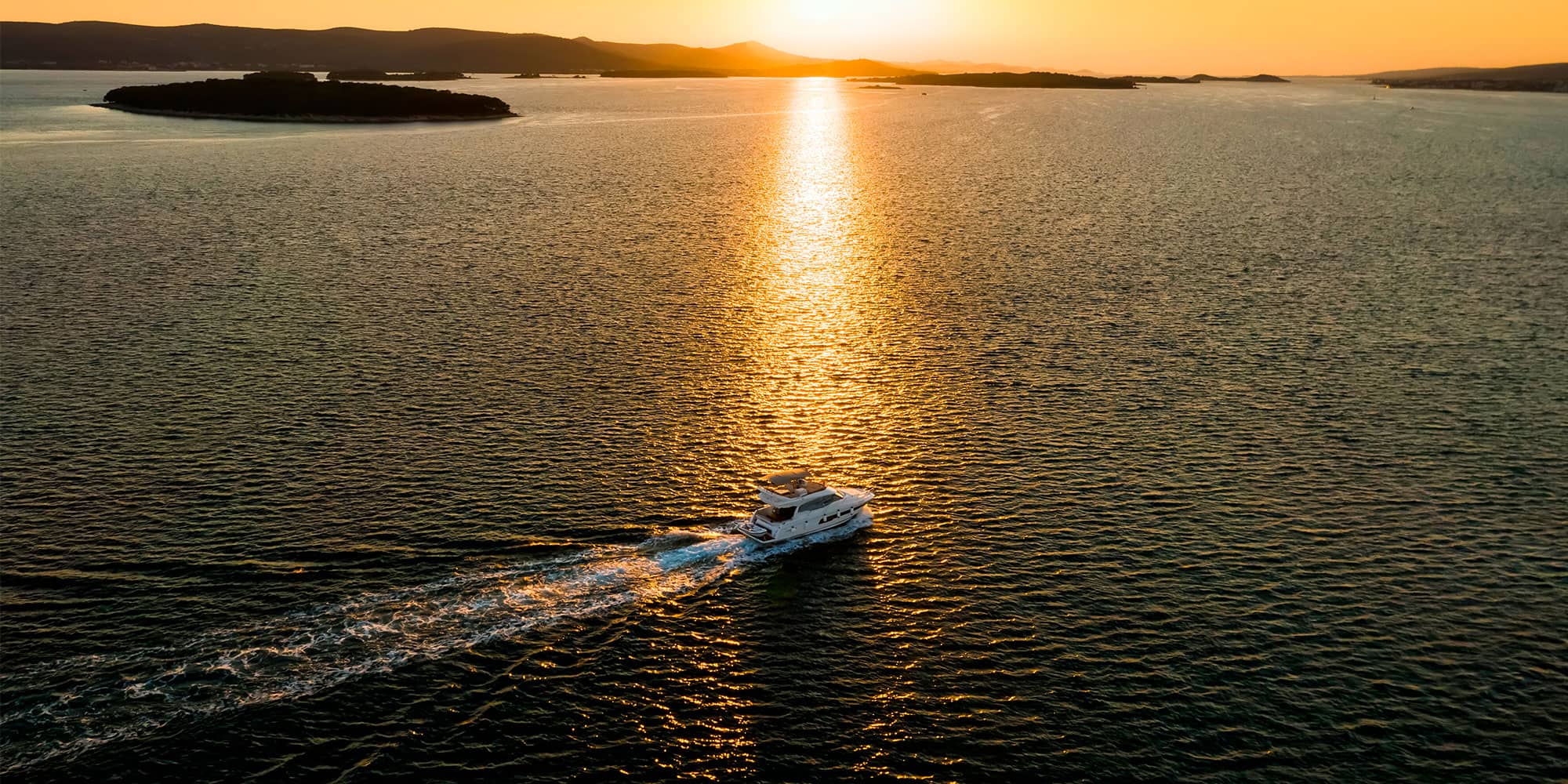
Additional resources
Related articles.
From boat safety tips to breaking down yacht insurance, find the information, advice, and resources you’ll need all in one place.
Warrior Sailing
Markel is a proud supporter of Warrior Sailing, an organization dedicated to healing and strengthening the lives of veterans through sailing. Visit warriorsailing.org to learn about Warrior Sailing and how you can donate to the program so they can continue to help the lives of wounded veterans.
Related products

Specialized coverage designed specifically for boats 26 feet or less, such as pontoons, runabouts, fishing boats and more.

Personal watercraft
Insurance for personal watercrafts (PWCs) such as a Jet Ski, Sea-Doo or WaveRunner.

High performance boat
Coverage for speedboats greater than 26 feet in length and capable of speeds 66 to 120 m.p.h.

Available Coverage
- Liability Insurance
- Medical Payments
- Uninsured Boater
Liability-Only Boat Insurance
Saving you money with liability-only insurance.
For many small boat owners or owners of older vessels, liability coverage is the most important reason to insure their boat. This provides coverage for injury or damage to a third party. Our liability only policies also include medical coverage, which often offers higher limits than a homeowner’s policy. This can also cover other types of accidents like a fuel spill that damages someone else’s property.
Many choose this coverage because the cost is generally much less than full coverage and a survey is not required, regardless of age. Additionally, most boat owners will find that their marina requires them to provide proof of liability insurance.
It is important to understand the full breadth of your marine liability insurance. If you do not know what your current insurance covers it might make sense to get a quote from Marine Underwriters.
Can I Rely on my Homeowner’s Insurance for Boat Liability Coverage?
Sometimes folks think that their watercraft or boat is covered by their home owners insurance – in fact in many cases homeowner’s insurance does not cover your watercraft. Even if they do it generally is limited to very small boats like row boats, canoes and vessels with 25 or less HP. So if you are relying on your homeowners insurance for boat coverage, you could be risking more than you know.
We offer a variety of liability insurance limits to meet your needs! Call us today or fill out this form to get a quote.
Toll free: 800-631-2147 Local: 843-979-9000
Marine Underwriters Agency, Inc. 1903 Bridge Street St. Matthews, SC 29135
Office Hours Monday - Friday 9 a.m. to 5 p.m. Eastern Time
Get a Quote Today
Call us at 1-800-631-2147 to speak directly with a yacht insurance specialist. Or complete our online and one of our insurance experts will get back to you within 24 business hours.
Start My Quote
© 2024 Marine Underwriters Boat Insurance. Privacy Policy
- Yacht Insurance
- Megayacht Insurance
- Powerboat Insurance
- Sailboat Insurance
- High-Performance Boat Insurance
- Houseboat Insurance Coverage
- Personal Watercraft/Jet Ski Insurance
- Charter Insurance
- Liveaboard Coverage
- Liability Only Insurance
- Coverage Map
- Get a Quote
- File a Claim
- Request a New Broker Kit
- Quick Quote Application for Agents
- Agents Report a Claim
Do I need a survey for boat insurance?
Before you can insure a boat of a certain age, length, or value, some boat insurance companies require a marine survey. You typically won’t need one if you’re insuring a new watercraft, but many insurers won’t cover used boats that haven’t been surveyed. When quoting insurance for a new or used boat, ask the insurer if a marine survey is required for your watercraft.
Explore Progressive's editorial standards for Answers articles to find out why you can trust the insurance information you find here.
What is done during a marine survey?
A marine survey is a detailed inspection of your boat’s exterior and interior mechanical components. As the surveyor inspects the boat, they’ll note any potential issues and present you with documentation that lists the current condition and seaworthiness of the vessel, as well as a value estimate.
How long does a marine survey take?
The length of time it takes to complete a marine survey varies based on several potential factors, such as:
- Size of boat
- Type of survey
- Age of vessel
- Prior preparation
- Extended testing (haul-out and sea trial)
It could take a full day if you're planning on having an in-depth condition and value survey conducted for your vessel. If a survey is required by your insurer, speak with your surveyor beforehand to establish a realistic timeline for your survey.
How is a marine survey used for boat insurance?
A marine survey may help uncover any underlying issues with your boat and determine what upgrades are needed to get the vessel into a safe operating condition. The survey can also establish the current value of your boat. This information can be especially helpful for used boats that may have more operating issues than new boats.
Progressive makes it easy to obtain boat insurance because you can get a policy without a survey, even for used boats.
How much does a marine survey cost?
Most surveyors charge a fee based on the boat's size rather than an hourly or flat rate. If you also want to have mechanical, electric, engine, or oil testing done, mention this to the marine surveyor upfront as these may cost extra.
Can I do my own marine survey?
If a survey is required, insurance companies usually require the survey to be conducted by an accredited or licensed professional..
Get boat insurance without a survey.
We'll ask easy questions about you and your boat, then you can choose coverages.
You'll speak with a licensed representative who will guide you through everything.
Through an agent
If you want local advice, we'll connect you with a licensed independent agent near you.

Enjoy life on the water with boat insurance from Progressive
- Get a quote
- Or, call 1-866-749-7436
Learn more about our boat insurance offering.
Have more questions? Browse articles by insurance type
See all articles by product

Car insurance

Home insurance

Renters insurance

Condo insurance

Motorcycle insurance

Boat & PWC insurance

RV/Trailer insurance

Life insurance

Pet insurance

Surveys waived for boats under $50K and under 30ft
UPDATED June 2024 – Gallagher Skippers’ Plan clients with boats under 30 feet in length that have a market value of under $50,000 no longer require a marine survey. Surveys will still be required as a requirement to keep Agreed Value Coverage, or if you have a Sea Doo jet boat. At anytime Aviva may request a marine survey for any vessel. This is an initiative we requested from AVIVA Elite Insurance Company. All that is required are photos (6-8 photos) that show the condition of the boat above and below the waterline, interior and engine compartment.
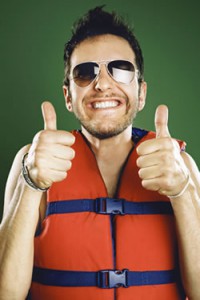
Surveys have been a standard requirement in the boat insurance industry on older vessels and we continue to recommend them if you are purchasing a boat. Surveys provide boat buyers with peace of mind prior to purchase, identify potential safety and maintenance issues and can provide an up-to-date value of the vessel, which helps to determine if it’s over insured or under insured. However, surveying the boat every 5 years as some insurance company’s demand can cost boat owners hundreds to over a thousand dollars depending on the size of their boat.
At Skippers’ Plan we are always looking for ways to make insurance easier and less expensive for our client’s. Contact us to find out how we can make insurance easier and less expensive for you too.
1-800-661-7211
Get a quote today
Learn more with our resource page
Email Not published
Whether you’re a weekend sailor or racer, own a cruiser or smaller boat you’ll find coverage that exactly fits your needs.

1.800.661.7211
Toronto/GTA: 416.789.7211 Fax: 416.789.9493
© Arthur J. Gallagher & Co. Arthur J. Gallagher Canada Limited
Gallagher Skippers’ Plan 169 Enterprise Blvd., Unit 400 Markham, Ontario L6G 0E7

Save up to 119.000 €: Discover our offer now
- Open search box

Sailboat insurance: an essential guide
Looking into insuring your sailboat? Dive into this guide for clear insights on terms, coverage, costs, and essential considerations.
Owning a sailboat is a thrilling experience, but like any valuable asset, it carries its potential risks. Yachting insurance serves as a vital shield against these threats. However, the often complex language of insurance can pose a deterrent for enthusiasts. This guide seeks to simplify these complicated terms, explaining the workings, coverage, value, costs, and critical aspects of such insurance. Our goal is to empower you with essential insights to confidently navigate the insurance landscape.
How does yachting insurance work?
Sailing insurance serves as a financial shield against the various risks that come with this maritime passion. Its critical role is to protect the substantial investment made in the vessel, offering reassurance for every venture out to sea.
Although this may vary by jurisdiction, standard coverage typically includes protection against physical damage to the yacht, personal injuries, and third-party liability - plus a host of add-ons available to cater to specific needs. Given the specific nuances of sailing, additional coverages such as storm damage, rigging coverage, or overseas use may be especially important. In the unfortunate circumstance of an accident or mishap, the insurance policy steps in to bear the cost of repairs, replacement, legal obligations, and even medical expenses.
Sailing insurance: What does it typically cover?
Understanding the breadth of coverage offered by a yachting insurance policy is pivotal in ensuring optimal protection. Typically, these encompass:
Hull and machinery coverage: Protects against damage to the vessel and its crucial components, catering for repairs or replacement costs.
Personal accident cover: Addresses financial implications of injuries to the boat's occupants, covering medical costs and potential loss of income.
Public liability insurance: This applies when the boat is involved in an accident causing injury or damage to third parties. It covers legal expenses, settlements, and damage repair for others.
Salvage and wreck removal: This covers the cost of recovering and removing the boat's wreckage following an accident.
Additional coverages can be considered to provide a more extensive level of protection, such as:
Emergency assistance: Provides emergency services like towing or on-site repair in case of breakdowns.
Personal effects coverage: Protects personal items brought onto the boat, such as fishing gear or electronic devices.
Rigging coverage: Rigging is a critical part of any sailboat, and damage to it can be costly. Not all policies automatically cover wear and tear on rigging, especially damages caused by heavy winds. Therefore, it's crucial to confirm whether your chosen policy specifically addresses these scenarios.
While the above-listed coverages form the basis of a standard policy, it's important to note that factors such as inshore or offshore use, cruising, or regatta participation can influence the insurance policies. Different sailing boat insurance providers offer a range of additional options to tailor coverage to these individual needs. So, be proactive. Effective communication with your representative can make all the difference!
Is boat insurance worth it?
The answer is a resounding 'Yes!'. Yachting insurance not only manages risk but also underpins the enjoyment and freedom that it represents.
Across different jurisdictions, sailboat insurance requirements vary. However, if you've financed your yacht with a loan or if you dock it in a marina , your lender or the harbor management might mandate proof of coverage.
Risks unique to sailing and boating
Sailing yacht insurance proves its worth in a myriad of unforeseen scenarios. Consider a situation where a sudden storm damages your sails or rigging, or an unexpected grounding causing hull damage. The cost implications of repairs can mount up, presenting a daunting financial burden.
Its value, though, is not limited to only these overt threats. It safeguards against more subtle but equally consequential risks tied to extreme weather conditions, sea-based hazards, and equipment failures - such as malfunctioning winches or navigation equipment - situations in which the benefits of having sailing insurance offshore become vividly apparent.
Boat insurance cost: What price tag are we looking at?
Navigating sailboat insurance costs can be as tricky as steering through choppy waters. Premiums can fluctuate significantly, mirroring each vessel's broad spectrum of variables and characteristics.
Understanding your sailing insurance quote
Generally, insurance costs fall within a range of 1% to 5% of the boat's value. But, it isn't merely an arbitrary number pulled out of thin air; it's a meticulously calculated figure embodying many components.
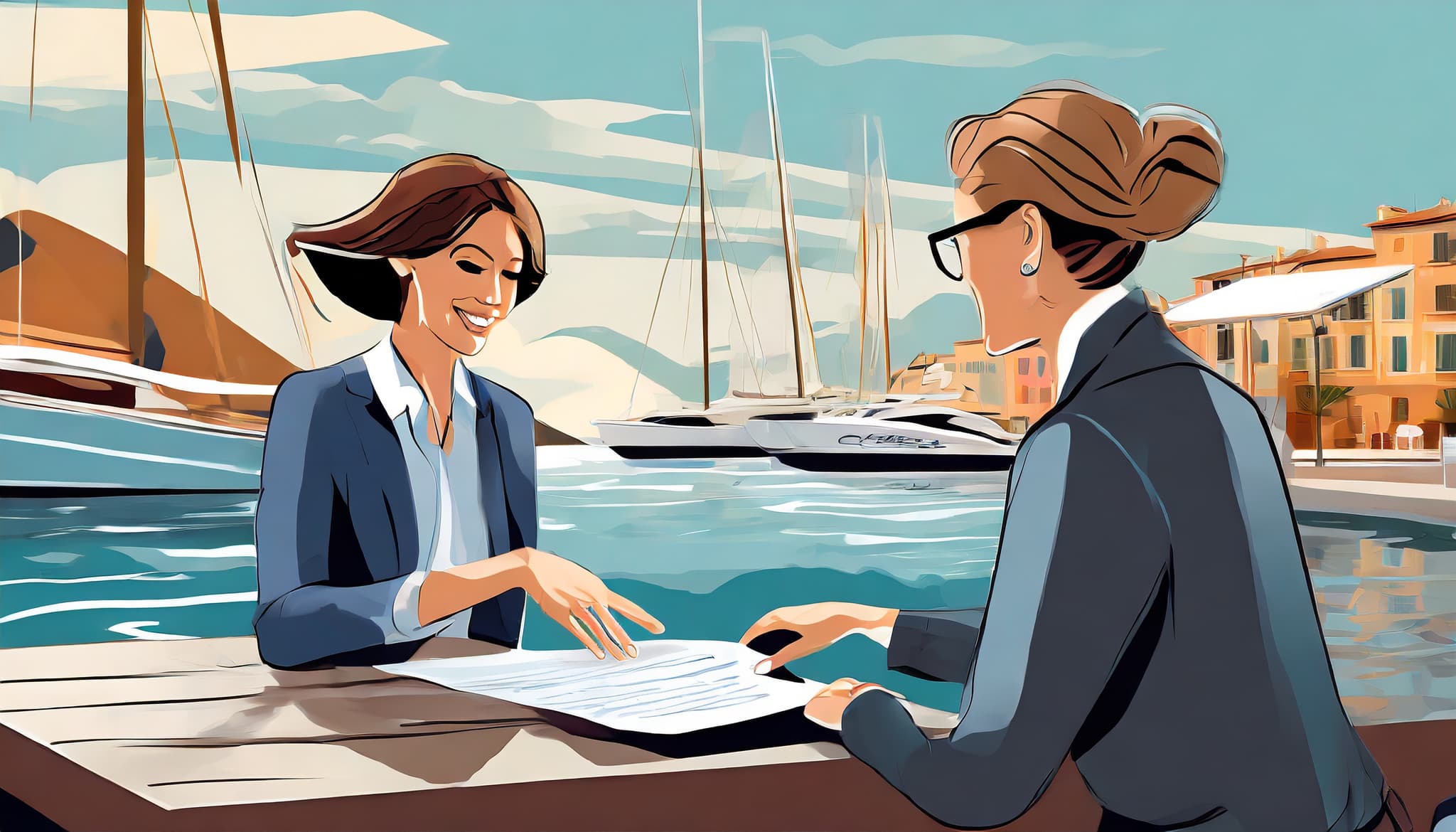
Safety measures: Boats equipped with safety features might get discounts.
Storage and mooring: Safe storage can lower the risk of damage and theft, reducing insurance costs.
Frequency of use: Less frequently used boats may have lower premiums.
Offshore sailing: Offshore sailing generally requires more comprehensive and costly insurance.
Racing or regatta participation: If you participate in races or regattas, this may increase your premium due to the heightened risk.
H ow to get boat insurance? Choosing the right provider
Here's a pearl of wisdom: don't anchor your decision solely on price! Yachting insurance is about charting a course towards peace of mind, ensuring your sailing pursuits are aptly shielded.
Embarking on your coverage journey starts with comprehending your unique sailing needs, canvassing and contrasting various quotes, and meticulously evaluating policy inclusions, exclusions, and stipulations. This due diligence serves as your bulwark; if navigated carefully, it's an investment that will weather many a storm, letting you enjoy the adventure without the nagging worry of unforeseen troubles lurking beneath the surface.
Yachting insurance provider: what to look for
Look beyond the allure of competitive premiums. Gauge the company's reputation - does it have a history of fairness and transparency in its dealings? Evaluate the quality of customer service - will they respond quickly and efficiently when you need them the most? Ascertain the smoothness of their claims process and if they're known for hassle-free claim settlements. Importantly, verify their financial stability to ensure that even in the face of a significant claim, they can deliver on their promise of protection.

- Get a Quote
- The Boating Specialists
- Find Out More
- Boston Whaler
- Boater's Choice Blog
- Learn How to Boat
- Why Boater's Choice
- Become a Dealer
- Get a Customer Quote
- Customer Service

Relax With The Right Protection
- Boater Liability Coverage up to 1,000,000 Dollars
- Agreed Value Paid on Total Loss, No Depreciation
- All Risk Physical Damage Insurance *
- Broad Navigation Area Allowances
- Year-Round Boat Protection
- Medical Payments Coverage
- Plus Lots More

We use cookies on this site to enhance your user experience.
Yacht Insurance

Get A Quote >>
Yacht Insurance Quotes on Your Screen in 90 Seconds
Yacht insurance is one of many types of boat insurance that we offer. Our unique Quick Quote feature provides marine insurance quotes in 90 seconds.
Whether your vessel is a personal yacht, corporate yacht, or occasional charter, you should consider the benefits of a yacht insurance policy. While most states do not require yacht insurance by law, many yacht owners enjoy the extra coverage. After all, accidents happen.
Our Insurance Agents Work For You
As marine industry leaders, we offer a wide range of coverage, from the most basic boat insurance policy to the broadest. Our team of marine insurance specialists will work with you to determine the best and most affordable coverage for you, your yacht, and your lifestyle.
United Marine Underwriters is an insurance agency not an insurance company — this puts you at an advantage when comparing yacht insurance quotes. Benefits that we offer include obtaining multiple yacht insurance quotes as well as individualized customer service. Our agents are here to help you find your best possible yacht insurance quote.
You can trust our qualified yacht insurance specialists to help determine appropriate insurance coverage for your yacht. We make obtaining insurance coverage a fast and easy experience! You can get an Instant Quote directly from our website.
Read our boat insurance guide to learn more about hull damage, personal effects coverage, liability, and other yacht insurance related topics.
Questions About Your Yacht Insurance Quote?
Check our Frequently Asked Questions for a quick answer to your yacht insurance quote or related question. These include:
- How long does it take to get a yacht insurance quote?
- How do I re-access my yacht insurance quote?
- Do I have to be named on the title to purchase a yacht insurance policy?
You can also contact an insurance agent .
Get your yacht insurance quote now!
Get An Instant Online Quote Already Have A Quote? Retrieve Quote - Edit Quote Purchase Coverage Quote Another Boat Renewal

Call us on 0204 579 2080 Mon-Fri, 9am - 5pm
- Existing customers
- Portal login
Third party boat insurance
Basic boat insurance for sailing enthusiasts.
Third party liability insurance is essential cover for boat owners. It provides protection against claims from third parties for damage to their property or for injury or death that may arise from the use of your boat.
Our features and benefits
- £3,000,000 limit of indemnity
- Cover in all UK and European waters
- Up to £15,000 costs for removal of wreck where it's your legal liability to do so
- No requirement for a survey
- No excess on claims.
Plus a key optional extra, if you need it
- Cover for liability whilst towing water-skiers (on sports boats)
Having basic boat liability insurance such as third party cover is often a requirement for using inland waterways, to launch your boat, or to keep it in a marina.
Get third party boat insurance cover
Buy online today using our quick quote and buy – our experts are always on hand to support you.
What's covered in our third party liability insurance?
Simply put, you'll have £3 million cover for all sums that you legally have to pay as a result of owning your boat, including:
- Death or, injury to third parties, including your passengers
- Damage to property owned by third parties
- Cover for removal of wreck where you are legally liable (up to £15,000)
Please note this list is not exhaustive – refer to full policy document for details.
Why choose us for third party boat insurance?
Our team is different because we understand the lifestyle of owning a boat.
Having boat insurance specialists do the hard work for you will help you enjoy your hobby with confidence and peace of mind.
We’re proud to offer:
- 40 years of marine broking experience, backed by the world’s leading insurance broker and risk adviser
- Real people giving you a personalised service
- A diverse team passionate about boats
- A trusted partner of the RYA
- Quality products backed by A-rated insurers
- The flexibility to buy the way you want – online or over the phone
- Access to our friendly team who is always on hand to help, especially if buying online isn’t quite right for you.
Our promise to you
We take third party boat insurance seriously, so you’ll always know you’re in the right hands. We promise to:
- Represent your interests at the time of a claim to get you the very best outcome
- Give proactive risk management advice to protect your boat
- Make it easy to make changes to your cover throughout the year.
Going the extra mile
Our dedicated team loves to answer your questions and go the extra mile wherever they can. And we’re not just boat experts, we’re also experts in:
- Finding solutions to fit clients’ complex needs
- Explaining policy conditions and exclusions so you don’t fall foul of them
- Explaining the risks to new boat owners
- Walking you through the whole process of insuring your vessel.
Still not sure what boat insurance you need?
No problem, we'd love to talk to you about your needs. Call an expert now or get a quote online.
Frequently Asked Questions
Where am i covered.
The UK and all European Waters.
Who can use my boat?
You and any suitably experienced friends or family members you give permission to use.
Will I need a survey on my boat?
Can i increase my cover from £3 million.
It may be possible to increase this cover (at an additional third party boat insurance cost). Please contact the team with your requirements and they will be happy to help.
Is wreck removal covered?
Where you are legally liable, the insurer will pay up to £15,000 towards removal of wreck.
Read our latest related articles
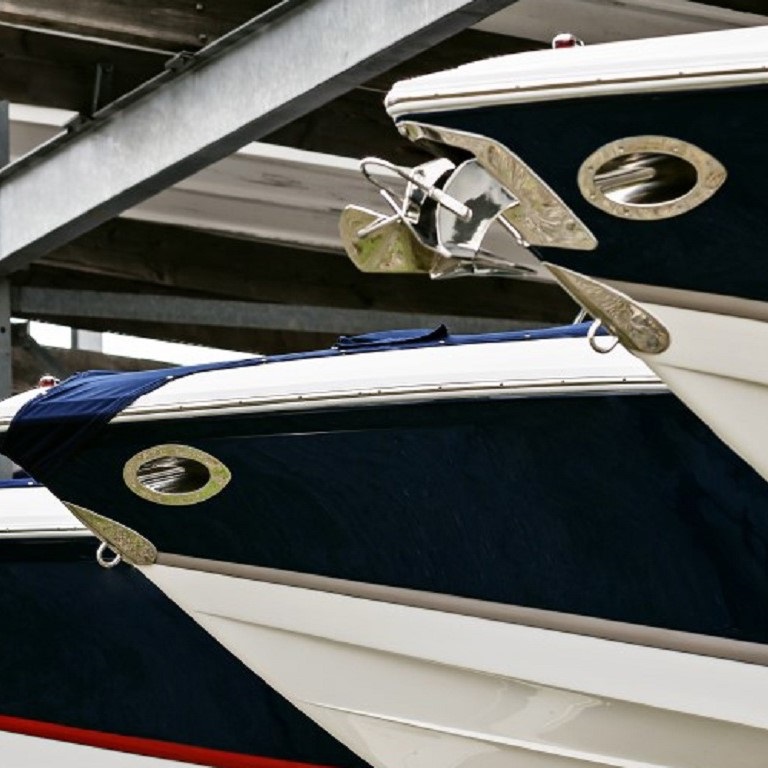
Checklist for buying or owning a boat in the UK
Have you just purchased a boat? Firstly, congratulations! To help you with the next steps, we’ve pulled together a 7 point checklist of the key things you need to think about.
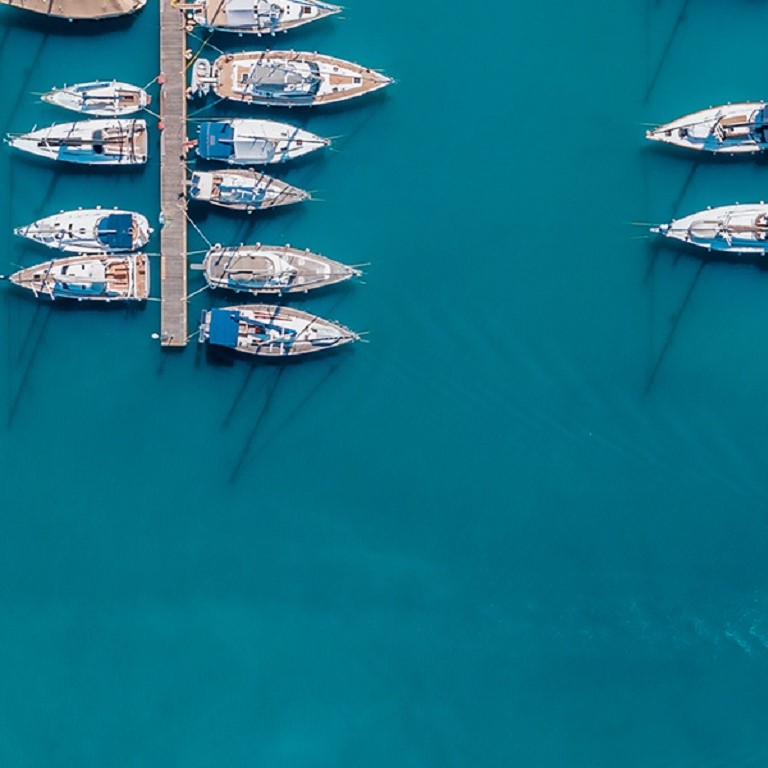
New quote and buy launches for yachts and motorised vessels
Find out more about Bishop Skinner Marine’s new quote and buy facility for motorised vessels and yachts.
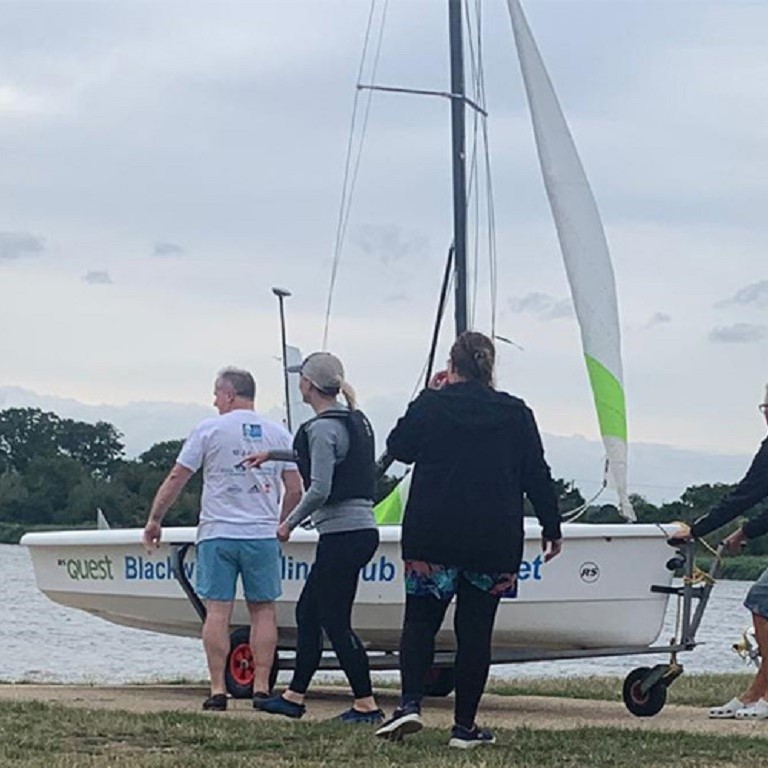
Bishop Skinner Marine team set sail at Blackwater Sailing Club
The Bishop Skinner Marine team recently enjoyed an evening of dinghy sailing on the training lake at Blackwater Sailing Club in some RS Quests. Find out how they got on.
Online or over the phone - our experts are on hand to support you.
We research all brands listed and may earn a fee from our partners. Research and financial considerations may influence how brands are displayed. Not all brands are included. Learn more .
- Boat Insurance
https://money.com/best-boat-insurance/
7 Best Boat Insurance Companies
- 7 Best RV Insurance Companies of August 2024
- How to Report Identity Theft to Authorities
- What Is a Credit Score?
- How Do Medical Bills Affect Your Credit?
- These Credit Repair Steps Can Help After ID Theft
- Should You Freeze Your Credit After Identity Theft?
- How To Get a Higher Credit Limit: A Step-By-Step Guide
- How Identity Theft Can Hurt Your Credit Score — And What You Can Do About It
- The Recent Grad’s Guide to Building Credit
- The Recent Graduate’s Guide to Reading a Credit Report — and What to Watch Out For
- Domestic Travel Insurance: What Does It Cover?
- 6 Best Life Insurance for Seniors of 2021
- How to Protect Your Credit During a Divorce
- 5 Best Small Business Loans of 2024
- Why Choosing a Higher Pet Insurance Deductible Can Pay Off
- 7 Best Dental Insurance Plans of 2024
- 6 Best Cheap Pet Insurance Companies
- What Is Whole Life Insurance and How Does It Work?
- What Pet Insurance Won't Cover
- Everything to Know About Your Pet’s Mental Health
| Best Insurance Packages | Best for Yacht Insurance | Best for Boat Rental Insurance | ||
| Progressive | Foremost Insurance Group | Chubb | State Farm | |
| Our Partner | ||||
| Company Highlight | Offers an extensive list of discounts for completing boat-safety courses and more, transferring from another company and more. | Has over five insurance packages to choose from tailored to boat type, age or coverage level. | Provides insurance for pleasure yachts that are between 36 and 70 feet in length and valued at up to $3 million. | Offers optional liability protection for rented boats. |
| Discounts | Multi-policy, Responsible driver, Original owner, Transfer from another company, Association member, Multi-boat, Advanced quote, Pay in full, Prompt payment, Safety course, Small accident forgiveness, Large accident forgiveness, Disappearing deductibles | Lay-up period, Policy paid in full, Boat safety features protective devices, Safety course, Multi-unit, Multi-policy, Loss free renewal, Prior insurance, 55 years or older, Affinity and alliance | N/A | Taking safety course, Lay-up period, Boating in fresh water instead of salt water |
Offers an extensive list of discounts for completing boat-safety courses and more, transferring from another company and more.
Multi-policy, Responsible driver, Original owner, Transfer from another company, Association member, Multi-boat, Advanced quote, Pay in full, Prompt payment, Safety course, Small accident forgiveness, Large accident forgiveness, Disappearing deductibles
Has over five insurance packages to choose from tailored to boat type, age or coverage level.
Lay-up period, Policy paid in full, Boat safety features protective devices, Safety course, Multi-unit, Multi-policy, Loss free renewal, Prior insurance, 55 years or older, Affinity and alliance
Provides insurance for pleasure yachts that are between 36 and 70 feet in length and valued at up to $3 million.
Offers optional liability protection for rented boats.
Taking safety course, Lay-up period, Boating in fresh water instead of salt water
Boat insurance helps cover repairs due to accidents, theft, fire, storms and other perils. It also offers liability protection in the event your watercraft injures someone or damages their property.
Even if you don’t use your boat regularly, insurance can provide peace of mind in case of unexpected events. To help you find the policy that best fits your lifestyle, check out Money’s guide to the best boat insurance companies of 2023.
Our Top Picks for Boat Insurance
- Progressive – Best for Policy Discounts
- BoatUs – Best for Membership Benefits
- Foremost – Best Insurance Packages
- State Farm – Best for Boat Rental Insurance
- Chubb – Best for Yacht Insurance
- Markel Insurance - Best for Commercial Boat Insurance
- National Boat Owners Association - Best Insurance Agency
Best Boat Insurance Reviews
Best for policy discounts: progressive.
- Wreckage removal and fuel spill cleanup included
- Offers accident forgiveness and disappearing deductibles
- Coverage limitations for expensive watercraft, and for big boats in hurricane-prone states
Why we chose this company: Progressive offers an extensive list of discounts. You could lower your monthly premiums by paying your policy upfront, completing boat-safety courses and more.
Insurance companies generally offer discounts if you insure multiple boats or combine your boat insurance policy with homeowners or auto insurance. Progressive provides those and more for a total of more than 10 discount options that may help you lower your boat insurance cost. You can get discounts for being the boat's original owner, not having motor vehicle violations or accidents on your record for the last three years, making timely payments and more.
Progressive's policies include accident forgiveness, which keeps rates from increasing if your claims are for $500 or less. Moreover, boaters who've been Progressive customers for at least four years and remained accident-free for three are exempt from rate increases for any accident, regardless of the claim amount. For an additional cost, you may also include a "disappearing deductible" feature that reduces your deductible by 25% for every claim-free period — until it reaches zero.
Note that Progressive has more limitations than other companies with regard to the vessels it insures. Personal watercrafts, such as jet skis, worth over $27,000 are not covered. And in hurricane-prone states, insurance is not available for boats over 35 feet in length or valued at over $175,000.
Additional coverage options:
- Total-loss replacement
On-water towing
- Fishing equipment
- Personal effects
- Mechanical breakdown
Medical payments
- Trip interruption
- Uninsured/underinsured boater
- Comprehensive coverage
Progressive policy discounts:
- Multi-policy
- Responsible driver
- Original owner
- Transfer from another company
- Association member
- Advanced quote
- Pay in full
- Prompt payment
- Safety course
- Small accident forgiveness
- Large accident forgiveness
- Disappearing deductibles
Best for Membership Benefits: BoatUS
- Free boater safety and education programs to earn discounts
- Extra-cost towing and emergency assistance plans available
- Geico auto insurance policyholders may get a discount
- Option to extend your coverage to Alaska, the Bahamas, Mexico and the Caribbean
- Some policy options aren't available in every state or to every type of vessel
- Does not offer replacement-cost insurance
- BoatUS membership required to sign up for unlimited towing benefits
Why we chose this company: BoatUS has several policy options and coverage add-ons, but it also has a membership program that features valuable discounts on boating stores, towing services and more.
BoatUS is one of the largest membership-based organizations for recreational boat owners. While a membership isn’t required to get a BoatUS insurance quote, buying one entitles you to benefits much like those offered by AAA or other auto clubs for your car. These include BoatUS safety courses (free to all, regardless of whether they have BoatUS insurance), the completion of which can earn you discounts on your boat insurance policy.
The Membership program offers discounts on charter cruises, towing, fuel, boat supplies and fishing stores, watercraft storage, repairs and other services. It also includes a towing assistance benefit, the details of which vary by membership plan.
The four membership plans cost between $25 and $179 per year. Each one includes 24/7 towing assistance, jump-starts, fuel delivery and soft grounding. The highest plan tier may cover the full cost of emergency tows and reimburse policyholders up to $3,000 for towing services provided by companies outside BoatUS' towing network.
BoatUS is owned by Geico and offers agreed value, actual cash value and liability coverage policies for most types of boats — though not replacement cost coverage, which many insurers offer. Also, note that since the company is a subsidiary of Geico, both offer the same policy. In fact, the Geico boat insurance quote process redirects you to the BoatUS website.
Coverage options:
- Dock contract liability
- Fishing guide
- Ice and freezing
- Lifetime repair guarantee
- Lower deductible for dinghies
- Lower deductible for electronic issues
- Personal effects coverage
- Unlimited towing
- Trailer coverage with roadside assistance
Policy discounts:
- Safety courses
Best Insurance Packages: Foremost
- Eight coverage packages by boat type
- Multiple discounts, such as those for boaters 55 years or older
- Elite package includes Bahamas and Mexico navigation
- Specialized insurance options for USAA members
- May not cover boats over 50 feet in length or $500,000 in value
- Some coverage options only available with the Elite package
Why we chose this company: Insurance companies usually offer a base policy that boaters can customize by adding optional coverage riders. While Foremost also offers optional riders, it stands out by selling over five insurance packages tailored to different boat types, ages and coverage levels. This can simplify the process of choosing the right policy features for your needs.
Foremost has three main packages: Saver, Plus and Elite. Saver is an inexpensive insurance option that provides actual cash value settlements, which is the amount it would take to repair or replace your boat minus depreciation.
Plus provides total loss replacement settlement, which pays to repair your boat to its previous condition and with the same materials as before an accident, rather than a depreciated amount. The Elite is the most comprehensive choice, adding pollution (spill) liability, wreck removal, pet coverage, towing services and more.
There are also packages for pontoon boats, boats that are more than 25 years old, speedboats that reach speeds of 77 mph or greater, and personal watercraft such as jet skis. Every plan can be customized with additional coverage options, including medical payments, personal property, boat transport trailer coverage and more.
- Personal Liability
- Uninsured Watercraft
- Medical Payments
- Towing and Roadside Assistance
- Trailer coverage
Personal property
- Policy paid in full
- Boat features protective devices (fire extinguishers, monitoring systems, etc.)
- Loss free renewal
- Prior insurance
- 55 years or older
- Affinity and alliance
Best for Boat Rental Insurance: State Farm
- Covers an unusually wide variety of watercrafts, including yachts, kayaks and canoes
- Optional coverage for rented boats
- Lay-up discount available if you don't use the boat year-round
- No actual cash value coverage available
Why we chose this company: Like many other insurers, State Farm covers expenses for damage your boat may cause to other people's property, such as another boat or a dock, as well as injuries sustained by others in accidents. It also offers an optional add-on liability protection for rented boats, a rarer feature of boat policies.
State Farm provides liability protection when you rent a boat during a vacation or while yours is being repaired. The company may also reimburse part of your rental costs if you rent a boat while yours is in the shop. And if you rent your boat, State Farm may also help pay for damages to your boat caused by the person who rented it.
Your base policy will include emergency service insurance, which pays for expenses you might incur if you need assistance with your boat, motor or trailer. This coverage is usually an optional rider and covers only vessel towing. State Farm policies also cover wreck removal, which reimburses you for the expense of raising, removing or destroying your boat's wreck when it's damaged due to a covered incident and you're legally required to remove it.
- Fishing tournament fee reimbursement
- Incidental commercial fishing
- Uninsured/underinsured watercraft
- Bodily injury liability
- Property damage liability
- Comprehensive
- Emergency services,
- Wreck removal
- Lay-up discount if you don’t use the boat year-round
- Boating in fresh water instead of salt water
Best for Yacht Insurance: Chubb
- Covers especially large and/or expensive yachts
- Complimentary background screenings, travel briefings and discounted rates on security services
- Consultations on local laws and customs
- No deductions for depreciation on most partial loss claims
- No information on website about policy discounts
Why we chose this company: Insurance companies typically cover boats up to 50 feet in length and up to $500,000 in value. Chubb , on the other hand, has two yacht insurance plans tailored to vessels that are between 36 and 70 feet in length and valued at up to $3 million. Coverage is also available for captained vessels that are 70 feet or longer and valued at $3 million and up.
Chubb's two yacht insurance policies include standard coverage options such as agreed value coverage, emergency towing and assistance and liability protection. However, its Masterpiece® Watercraft Insurance goes further, covering the cost of hauling or docking the vessel due to an incoming storm, the marina where the yacht is stored and liability protection for the boat’s crew. It may also pay up to $25,000 to cover the cost of fines and penalties as a result of marine environmental damage and more.
Coverage is also available for captained vessels of 70 feet or longer and valued at $3 million and up. Yacht owners receive coverage of up to $10,000 to charter a boat if your own vessel can’t be repaired within 72 hours. There is similar coverage for renting a watercraft in the event your own is unavailable.
Agreed value coverage
- Liability protection
- Medial payments
- Uninsured boater
- Pollution/Fuel spills
Hurricane haul-out
- Pet injury coverage
- Replacement-cost coverage for dinghy and tender
- Optional higher limits for emergency towing and assistance
- Marine Environmental Damage coverage
- Salvage costs and loss protection
- Temporary Substitute Watercraft coverage
- Optional higher limits for trailer coverage
Best for Commercial Boat Insurance: Markel
- Insurance coverage for watercraft used for commercial purposes
- Covers liability for damage to the vessel's storage facilities
- Diminishing deductible program
- Few physical branches nationwide
Why we chose this company: Where most boat insurance companies cover boats and watercraft used recreationally, Markel 's insurance policy covers vessels used for business purposes, including commercial fishing, boating classes, renting and chartering. Its marine insurance policy also covers liability for any damage the vessel causes to the rental facility where it's stored.
Markel covers several types of boats, whether they be yachts you charter for sightseeing or boats you own and operate. It also offers various boat insurance options, including coverage for damaged equipment and liability coverage for property damages, bodily injury, pollution (including fuel spills) and the crew.
Markel's policies for boats meant for personal use start at as little as $100 per year.
The company is also among the few boat insurers that reduce your deductible for each year you're claim free. The deductible drops by 25% each claim-free year until it reaches zero.
- Business interruption
- Boat towing
- Tournament fee reimbursement
- Premises liability
- Slip and mooring liability
- Emergency expense reimbursement
- Diesel engine
- Primary operator age 40 and over
- Insuring more than one boat
- Boating experience of five years or more
Best Insurance Agency: National Boat Owners Assocation
- Pairs you up with the best providers for your needs
- No membership needed, but members get benefits such as emergency towing and discounts at marine retailers
- Provides financing to buy new or used vessels
- Must go through quote process to get more information on coverage options
Why we chose this company: If you’re unsure as to the boat insurer that’s best for you, you may want to go for a boat insurance agency. The National Boat Owners Association (NBOA) connects you with insurers offering coverage for all types of boats and watercraft, including speed boats, sailboats, fishing boats, catamarans, yachts and jet skis.
The insurance companies NBOA partners with offer a wide range of coverage options such as liability protection with limits ranging from $100,000 to over $1,000,000, towing services and personal property reimbursement. Some insurers also offer total loss replacement coverage which replaces your boat with a new one of the same or similar make and model in the event of a total loss.
While you don't need a membership to purchase insurance, you'll need one to receive benefits such as emergency dispatch services, towing coverage, marine financing and industry discounts. NBOA offers two membership plans, costing $35 or $75 per year.
Other companies we considered
- Offers premiums as low as $25 per month
- Discount if you own a home, even if it's not insured under Allstate homeowners insurance
- High ratio of complaints filed with the National Association of Insurance Commissioners (NAIC)
Allstate offers policies starting at $25 per month and several discounts, including one for being a homeowner, even if the house is insured with a different company.
Why it didn’t make the cut: Allstate has a higher ratio of complaints with the National Association of Insurance Commissioners (NAIC) than our other picks.
- Insurance packages ideal for fishing trips
- Pollution liability coverage and wreckage removal are included
- Roadside assistance included if you insure your boat trailer with Nationwide
- Limited coverage add-ons available
- Scored below average on several J.D. Power customer satisfaction studies
Nationwide offers six insurance packages that are ideal for fishing trips. The company also includes roadside assistance at no additional cost if you purchase boat trailer insurance as well.
Why it didn’t make the cut: The company scored below average on several J.D. Power customer satisfaction studies compared to our main picks.
United Services Automobile Association (USAA)
- Members get a 5% discount on coverage for most watercraft valued under $150,000
- Discount for being claim-free
- Insures most types of boats
- USAA boat insurance only available to military families.
USAA consistently scores high on J.D. Power's customer satisfaction studies. The company also covers many types of watercraft, including yachts and boats valued at over $150,000.
Why it didn’t make the cut: Its plans are only available to military families.
American Family
- Add-ons include personal property, total loss and equipment damage coverage
- Offers a multi-policy discount
- Policies available only in 19 states
American Family offers physical damage, liability, medical payments, fuel cleanup, emergency service and equipment coverage for a wide variety of vessels, including personal watercraft, houseboats, sailboats, bass and fishing boats, yachts and speed and power boats. It also sells policies for kayaks, canoes, dinghies, row boats and stand-up paddleboards.
Why it didn't make the cut: The company only operates in 19 states.
United States Power Squadrons (USPS)
- Membership includes discounts on BoatUS insurance policies
- USPS safety course graduates get a one-year complimentary BoatUS membership
- Insurance program only available to members
- Membership entails an additional cost
The United States Power Squadron (USPS) is a non-profit boating organization that provides maritime safety classes. Members get discounts on BoatUS insurance policies, but membership requires an additional cost of $109 for individuals and $150 for families.
Why it didn’t make the cut: USPS is not an insurance provider.
Boat Insurance Guide
Boat insurance works similarly to car insurance in that it provides financial protection against damages to your property (in this case, a vessel) and that of others. It also covers medical expenses you or your passengers incur and other liability claims.
Unlike with cars, most states don’t require that boats be insured — although some marinas may ask for insurance to rent a dock. If you're financing a vessel, lenders may also demand you carry insurance. However, even if these requirements don’t apply to you, insuring your boat may be a good idea.
What does boat insurance covers?
Policies vary between insurers but coverage typically includes property damage and liability coverage. Let's go over them in detail.
Property damage coverage
Property damage coverage insures your vessel against damages or loss caused by collisions with other boats or objects (such as a dock or buoy), theft, sinking, fire, storms and other risks. The property covered may include the hull, motor, fittings, furnishings and other equipment. This coverage is also known as comprehensive and collision coverage.
Liability coverage
Bodily injury liability helps pay legal expenses and settlements if you're found at fault for someone's injuries during a crash, for example. Property damage liability, on the other hand, covers damages to others' property, such as a boat or dock you collide with.
What boat insurance doesn’t cover
Unless your policy states otherwise, boat insurance generally won't cover:
- Wear and tear
- Deterioration
- Damage from animals
- Manufacturing defects
- Servicing and maintenance
- Renovations
Other exclusions may include accidents that take place while boating outside your policy’s navigation limits or during a lay-up period.
Optional boat insurance coverage
Boat insurance companies may offer add-ons to augment their base policy's coverage. Here are some of the most common.
Medical payments coverage pays for the treatment of injuries, like medications or X-rays, you or passengers sustain in a covered accident.
Roadside assistance
Roadside assistance covers part or the total cost of towing your boat trailer if it breaks down. Some plans also cover labor for on-site vehicle repair.
Wreckage removal
Wreck or wreckage removal helps cover the cost of removing your boat or any debris from the water after an accident or if your boat sinks.
Mechanical breakdowns
Mechanical breakdown coverage pays to repair or replace an outboard motor, unless the issue is due to general wear and tear.
Watersport injuries or damages
Watersport coverage pays for injuries directly related to water sports, like tubing, wake surfing, or water skiing.
Fuel spill cleanups
If your boat spills fuel or oil due to an accident or leaking tank, this coverage can help pay cleanup or legal costs.
Also known as personal effects insurance, this coverage pays for the replacement cost of fishing equipment, scuba gear, clothing, electronics and more.
Uninsured/Underinsured boater
As the name suggests, this option covers injuries caused by a collision with a boater that doesn't have insurance or has insufficient coverage.
This add-on pays for towing if your boat leaves you stranded. It may also cover jump starts, soft un-groundings and fuel delivery. Depending on your plan, you may have to pay a deductible per towing service.
Ice and freezing damage
Ice and freezing damage coverage pays for damages to your boat’s engine or body caused by improper winterization. It may cover your boat while docked outside or if the storing facility's heating system fails.
This endorsement reimburses the cost of moving your boat out of the water before a hurricane or other named storm is headed for your area.
Extending your navigation
Boat insurance typically only pays for losses and injuries that happen within designated geographical limits. You'll have to purchase additional coverage to extend these navigational limits to other areas — like Alaska, the Bahamas, Mexico or the Caribbean.
Types of boats covered
The types of watercraft covered vary across insurance companies but may include:
- Bass/fishing boats
- Pontoon boats
- Power/speed boats
- Personal watercraft (PWC) such as jet-skis
Some insurers may also cover non-motorized watercraft such as kayaks, canoes or stand-up paddleboards.
Agreed value vs. actual cash value policies
Companies offer one of two types of reimbursement: agreed value or actual cash value. The type of policy you opt for will determine your coverage limits and premium.
This pays the amount you and the insurer agree on when you purchased the policy. It doesn’t take into account the value of your boat at the time a claim is submitted. It provides the most protection since it pays to replace or repair your watercraft without deductions for depreciation.
Actual cash value coverage
This option takes into account the market value, age and condition of the watercraft at the time of the accident. The insurer pays for repair or replacement costs after accounting for depreciation. Premiums on actual cash value policies are more affordable, but these provide less coverage in the event of total loss.
Some companies also offer replacement cost coverage. This type of coverage reimburses the full amount needed to repair your boat after an accident. In the event of total loss, the insurer pays to replace your watercraft with the same or a similar model.
Is my watercraft covered by my homeowners or umbrella insurance?
Homeowners insurance may cover your boat — as long as the watercraft meets the insurer’s size and speed restrictions.
Most policies cover small boats under 26 feet in length that have engines of 25 horsepower or less. However, note that coverage limits for physical damage are usually low — typically no more than $1,000 or $1,500 per item — so you may need to purchase an add-on or “endorsement” to insure your watercraft to its full value. Also, coverage for medical payments, other personal property or liability may be excluded.
Umbrella insurance may also cover your watercraft. However, the underlying policy covering your boat must first meet the liability requirements of your umbrella policy. For instance, an umbrella policy won’t cover legal fees and damages if it requires a minimum liability coverage of $500,000 and your boat or homeowners insurance caps at $300,000.
How much does boat insurance cost?
Your premium will depend on factors such as:
- Navigation area: boating inland (lakes or rivers), coastal regions or traveling to the Bahamas, Mexico and the Caribbean (sometimes also Alaska).
- Boat type: the model, year, size and speed of your watercraft.
- Your boating record: prior boating violations, accidents, claims or boating safety courses.
To insure a used boat, underwriters may require a marine survey to determine the vessel's overall value and condition. The surveyor inspects the boat for any underlying issues with its structure, machinery and onboard equipment.
Some insurers offer policies for as low as $25 per month or less but these usually only offer basic liability protection. Advertised prices go up as you add more coverage options to your plan.
How much boat insurance do I need?
The amount of insurance you need depends on the value of your vessel. For example, if you have a $40,000 boat, you’ll want at least $40,000 worth of coverage. It also depends on where you dock, moor or store your boat. Some marinas require at least $300,000 in liability protection but it can be as much as $1,000,000.
How to save on boat insurance
A policy that offers cash value coverage will be the cheapest option, since your insurance company can factor in depreciation when paying for damages. Choosing a lower liability limit and a higher deductible are other ways to lower your monthly premium. Just keep in mind that these choices could lead you to pay more out of pocket for damages, injuries or legal fees after an accident.
Insurers also offer policy discounts that can help you save money on your premium. These commonly include:
- Insuring more than one boat under the same policy
- Bundling your boat, homeowners and car insurance policies
- Paying your insurance in full
- Taking safety courses
- Having claim-free periods
- Having no boating accidents on record
- Owning a diesel-powered boat
- Not using your boat during during certain months (lay-up)
- Installing safety devices such as fire extinguishers or a fume detector
Common reasons for boat insurance claims to be denied
Boat insurance only covers events that are explicitly stated on the policy declaration. However, a claim may be denied even if your policy covers the event. That can happen if:
- You were operating a boat under the influence of alcohol or drugs
- You didn't give the watercraft proper maintenance
- The damages or injuries exceed your policy limits
- You made mistakes when filing the claim
- You failed to safeguard your boat before a storm
- You use your boat for commercial purposes (this usually requires marine insurance tailored for businesses)
Best Boat Insurance FAQs
How much is boat insurance, what does boat insurance cover, do i need boat insurance, is boat insurance worth it, how we chose the best boat insurance.
Here's what we looked for when choosing the best boat insurance companies:
Coverage options and discounts We looked for companies that offered a comprehensive selection of insurance packages, coverage add-ons and policy discounts.
Customer satisfaction As we researched companies, we focused on those that receive mostly positive feedback on online review sites such as the Better Business Bureau (BBB) and customer satisfaction studies by J.D. Power.
Financial strength We considered the financial strength of each company by looking up their rating from A.M. Best, a credit rating agency that focuses on assessing the creditworthiness of insurance companies. All our picks scored between A and A++.
Complaint index We evaluated every insurer’s complaint trend report from the National Association of Insurance Commissioners (NAIC).
Summary of Money’s Best Boat Insurance of 2023

How To Make Yacht Insurance Suck Less
We’re starting our 6th year as liveaboard offshore sailors. And without a doubt, yacht insurance has been the most unexpected pain in the arse!
We’d always been told: Getting sailboat insurance the first year would be a challenge. It will be the most expensive for year one because we were newbies…with almost zero sailing experience. But those two warnings were quickly followed up with a little optimism: As you stretch your sea-legs, gain more sailing experience and log more time on the water, options would open up and insurance would get cheaper.
Lies. All Lies.
And it’s not just us, it’s every offshore USA flagged boat owner we talk to. Yacht insurance as an American sailor abroad just kinda sucks. Especially in the South Pacific (for some odd reason). I can’t offer up any words of wisdom on how to fix this mind-bending insurance system, but we have learned a lot on how to best present ourselves and our vessel.
Of course, we are NOT experts and there is still a lot we don’t know. But, if you’re a newbie buying your first boat or a fellow sailor struggling to get offshore, bluewater, around-the-world coverage, hopefully, this information will make the process suck a little less.
Here are the biggest tips we’ve learned about getting boat insurance.
Why is it so difficult to get offshore yacht insurance???
We ask this question to all the insurance brokers we contact and here are some of the responses we’ve received.
- “The current yacht insurance market is getting hard to place coverage for cruisers abroad, and with the majority of the south pacific closed it isn’t very appetizing for US or London Insurers to provide coverage. Inevitably with time, the insurance industry will reopen.”
- “Big, negative changes in the boat insurance markets due to 100,000+ lost vessels in the last 3 years.”
- (increase in natural disasters: hurricanes, floods…)
- “If anyone asks you to sign a Broker of Record Letter , they are trying to get you a quote that I’ve already sent to you…the number of options (or offshore insurance) are narrowing down!”
- Underwriters had a lot of losses in the hurricanes and have really cut down on writing new business that involves long passage making and remote places. If the vessel has a claim, it is hard to find a haul-out, get work done, adjustors, survey, etc.
Why We Need Insurance
Our catamaran is our home, transportation, and everything we own. To us, it’s just not worth risking. In the past, sailors talked about cruising without insurance and how it wasn’t necessary. But the rules are changing. Even in the 5 years, we’ve been sailing we’ve noticed more and more places where sailboat insurance is a requirement. If you plan to sail around the world, here are some of the reasons why you may need yacht insurance.
- Many countries are mandating insurance for entering yachts (Australia, Portugal, and others). And some countries like Panama and Ecuador have required proof of insurance from us when checking into the country.
- Marina’s, Mooring Balls, and Haul Out Yards will require proof of insurance.
- If you have a loan on your vessel, the bank will most likely require insurance.
- Hit and Run Boaters are also a thing. Insurance is expensive and many boaters choose to go without. Imagine when that person accidentally bashes into your boat while you’re on a provision run…it’s not likely they’re going to drop the hook, dinghy over and leave a note on your boat with their contact info. Shoot, even if you see them do it what are the chance you’re going to get money out of them? If you have ‘hit and run’ coverage your insurance company will pay for the repairs.
- Liability! There are a lot of scenarios we could talk about here (dragging anchor, busting off a mooring, hitting a $10,000,000 mega yacht at a fancy marina) and it’s all about what else we could damage that isn’t our boat. If we were to run up a reef, we become responsible for not only the removal and repair of our vessel but any damage to the reef, the property we’re on, and even the government agencies that maintain the oceans/fisheries. Talk about going bankrupt in a hot second!
3 Important Questions To Ask
There is a lot of industry jargon to interpret when it comes to boat insurance. It’s important to do your homework, read the policies, research anything you don’t understand, and ask a lot of questions. Here are some of our standard inquires.
- Is this an ACTUAL CASH value or AGREED AMOUNT value policy? We want Agreed Amount . If the insurance company has agreed to insure our vessel at $300k, then we should receive a payout near that agreed value (not whatever some random computer says the generic value is. We have a lot of upgrades on our boat that the average coastal cruiser or charter boat wouldn’t have).
- Salvage: Who picks up the bill if the boat needs to be salvaged? (from sinking, hurricane damage, etc) When we have a claim, how much help will the insurance company give us? For example, if the boat is damaged in a storm: Who handles the Salvage claims and repair process (find salver, crane, trucking, towing, repair facility, angry property owners, govt. official/agencies). To handle all of this on your own can be EXTREMELY STRESSFUL.
- Consequential Damage: Does the policy have consequential damage coverage: For example what if a corroded through-hull causes the boat to sink (thinking of our single-hulled friends), or a fire breaks out and we don’t have automatic fire suppression in the engine locker (because we don’t)…If we don’t have consequential damage coverage, then a total loss claim could be chalked up to wear and tear.
Terms are Negotiable
Don’t take the initial quote as gospel. Just because a quote comes back with restrictions and requirements doesn’t mean they can’t be negotiated. If you don’t like something, ask about what you can do to change it. Provide additional documentation, upgrade something, take a higher deductible, take a first aid class…ya never know unless you ask.
If the policy says you need to be out of the hurricane zone by June 1 st , but your boat isn’t ready to leave, ask for an extension and provide the reasoning. They may give you an extra couple of weeks at no cost. It’s worked for us while we were in Florida.
Crew requirements can be modified. If the underwriter says you need a 4-person crew, resend your sailing resume and plea your case and experience. Explain how your vessel is set up for single-handing, or how you’ve sailed with a smaller crew in more challenging conditions. If it’s compelling, they can make adjustments. We’ve had to do this a couple of times over the years before paying for a new insurance policy,
If a new policy requires a haul-out and survey, but it’s not possible (or cost-prohibitive) to get this at your current location, tell them your intentions are to get a survey once you arrive at the next destination. They may give you 30 or 60 days after arrival to complete it. One of our quotes for 2021 agreed to let us delay the survey until after we arrived in NZ.
Rates We Have Paid
We all like real-world numbers and not hypotheticals. So here is a very quick glance at what we have paid over the past 6 years of being offshore sailors.
Remember, we have had to find a new policy every freaking year. Each year we contact everyone on the list below for quotes, but this year (2021) we hit a new record: The worst quote we’ve ever received at a whopping $11,300 from LJJ (a Lloyds of London underwriter).
We insure our 2005 Leopard 43 Sailing Catamaran at a value of $320,000 usd.
- 2016, Florida/Bahamas: $3860
- 2017, Florida/Bahamas/Panama/Ecuador: $4943
- 2018, Ecuador/ French Polynesia: $4655
- 2019, French Polynesia/Cook Islands/Niue/Tonga: $5517
- 2020, Tonga: $6674
- 2021, Tonga/New Zealand – $4305 (Brokerage: The Marina Shop NZ)
Who To Contact
Yacht Insurance is a complicated world filled with what feels like way too many cooks in the kitchen. There are insurance brokers, insurance companies (including mutual insurance associations), reinsurance companies, and adjusters. To further confuse things, many of the insurance companies are backed by insurance giants like Markel and Lloyd’s of London.
For simplicity’s sake, we’re breaking this up into 2 groups: Yacht Insurance Brokers and Yacht Insurance Companies.
Finding companies that insure US-flagged vessels and provide coverage in our intended cruising area is difficult. One year a company won’t quote us, the next they will. It changes every year and so even if you don’t get a favorable quote one year, try again next year.
Yacht Insurance Brokers
A broker is who we contact to get the quotes and they may work with or submit our information to 1 or 100 different insurance companies to get quotes. We contact at least half a dozen brokers every year for quotes. TIP : If you’ve already received quotes from certain companies, tell the broker in advance so they don’t spend their time getting you exactly the same quotes. Here are the brokers we contact each year. Ask your fellow sailors for their broker information too.
- The Marina Shop (NZ), Contact: Bill Garlick
- International Waters Insurance Services, Contact: Susan Waters
- Novamar Insurance, Contact: Charlie Bailey
- Bailey’s Insurance (NZ), Contact: Ken Monk
- W.R. Hodgens Marine Insurance, Contact: Bill Hodgens
- Global Marine Insurance Agency, Contact: Susan Everhard
Yacht Insurance Companies
This is who is writing and backing the policy (underwriter, reinsurance). Here are the ones we’ve tried with notes on quotes or responses. Your experience with each will no doubt be different.
- Jackline – Will not insure yachts with lithium batteries
- Yachtinsure Limited – Not insuring in the S. Pacific
- Concept – Medium-High quote, loads of restrictions
- LJJ Associates – Highest Quote
- Kemah Marine – High Quote, Few Restrictions
- Admiral Marine – Only insures European vessels
- Chubb Insurance – Cannot quote yachts outside the USA
- Club Marine – Only insures coastal cruising (250 nm from land) in AU, NZ, and TAS
- Pantaenius – High Rate Quotes for the Atlantic & would not quote us for the S. Pacific
- National Specialty Insurance (State National) – Insured us in 2019 & 2020
- Global Yacht Cover – Insured us in 2018
- DUAL Aqua – Insured us in 2017
Sailing Resume, Boat Resume & Maintenance Log
Probably the biggest lesson we’ve learned is to invest time in creating and maintaining a sailing resume, boat resume, and maintenance log. We’ve had multiple insurance brokers compliment us on our approach with these documents and tell us it does make a big difference.
Sailing Resume
Think of it just like a personal job resume. You can even use the free templates online from Microsoft word or whatever program you have. If you want some examples, search for yacht crew resume and you’ll find bunches. But, here is what we have on ours.
- Any professional sailing instruction or certifications (ASA courses). A list or table of the number of days, sizes of vessel, and level of instruction such as basic introduction, skippering training, bareboat charter, off-shore training.
- A good headshot of us at the helm.
- Any safety instruction or certifications. First Aid, First Responder…we even list our PADI open water certification.
- List of boats that you have owned, the type of boat, the size, and for how long.
- We include what country or body of water it was in.
- We note the nautical miles sailed.
- Note if it was a multi-day (list how many days) or overnight passage.
- Special endorsements that you have been given by an instructor (ex: catamaran sailing, engine maintenance, maneuvering and docking, heavy weather, etc.). Letters of recommendations from certified captains can help prove competency.
Boat Resume
I haven’t been able to find any examples online but I think of it much like a for sale listing. Lots of photos (front, sides, back, top-down) and I list out every safety benefit I can muster. We include:
- Year, Make, Builder, Length: 2005 R&C Leopard 43 Sailing Catamaran.
- Home Port, Registration (US Coast Guard), MMSI number, Hull ID number.
- Tender information (and photos): Year, make, construction type, registration, hull ID, engine.
- Description of the boat, how it’s known as a bluewater sailboat built for reliable construction, seaworthiness, and performance. With extra emphasis on reinforced construction, sealed bulkheads, high-quality materials…
- Images of the layout of the boat from the manufacture (scans of original brochure).
- List out all additional upgrades and safety equipment (anything showing redundancy, additional safety, or reliability)
- Details of our sail plans for the year (passage from Tonga to New Zealand, coastal waters of New Zealand)
- Quick List of Crew and experience. The cliff notes version of our sailing resumes.

Maintenance Log
This one is fairly straightforward. We have photos from our haul-outs and list work completed, upgrades, and replacements.
We have our most recent survey and a signed survey compliance list from the yard proving that we completed the tasks mandated by the marine surveyor. But ask your broker before sending this, if your survey is more than 2 years old they may want you to ‘keep it in your pocket’ and only provide it if the underwriter requests it.
We also keep a maintenance log of our engines and routine maintenance. We let the broker know this is available upon request.
Tips To Get The Best Quote
There are a lot of factors that affect boat insurance costs. The age and condition of the vessel, the cruising area, and your experience all matter. But there are a lot of extra details worth considering.
- Select the highest deductible you can afford. Often it’s automatically set at 5%-10% on quotes. If you can afford 15% or 20% it can save a substantial amount each year.
- Umbrella Policy: Insure personal articles through another insurance company like homeowners, renter’s insurance, personal items policy, etc.
- Be realistic with your estimated values and revisit them each year. If similar boats are selling for $100k don’t try to insure your boat for $150k. If you paid $10k for your RIB 5 years ago, consider lowering the estimated value to reflect the market value.
- Limit Emergency Evacuation and Towing benefits. Seek 3 rd party companies as they are sometimes less expensive and provide more comprehensive services. For example DAN (Divers Alert Network) or programs like Sea Tow or Boat US. Also, check with your health insurance company about the costs of adding medical evacuation.
- Safety: Upgrade your safety gear like Bilge Pumps, EPRIB, Off-Shore Life vests, Life Raft, Flares, AIS MOB, etc. One insurance company wanted to make sure our vessel had an EXTRA 1500 gph bilge pump that could be easily wired and placed in the bilge for emergencies.
- Cruising Plans: Be realistic with your Cruising Plans and understand the navigational limits. Cruising grounds requested can play a big role in coverage and cost. Some countries are considered safer to visit and cost less to insure. For example, it is possible to sail to Cuba, but many insurance agencies will charge an extra premium because navigation aids aren’t kept up and charts aren’t always accurate, making it more challenging to navigate. You can often add locations mid-policy, sometimes for free, or for way less than adding it to your planned navigation route from the start.
- Stay out of hurricane or cyclone zones when possible.
- Storm Plan: If you boat in a hurricane zone, your insurer may expect you to provide a hurricane plan. If a storm approaches, will you have it stored in a hurricane-proof facility or will you sail it to a safe harbor? How will you secure it? How many anchors & lines do you have, and what thickness? The right answers can affect your rates, maybe even lower them, but be prepared to follow the plan because your coverage may require it.
- Lock up your dinghy, and dinghy engine even on the davits. Lock lockers with valuable items like SCUBA compressors, or expensive toys. Take photos for proof. Many of our policies had notes in the “fine print” saying if a dinghy (or locker) wasn’t locked up, they wouldn’t cover the loss.
- Recent Marine Survey (Less than 3 Years Old, Proves the Age and Condition of the Vessel).
- Install an Automatic Fire Suppression System.
- Enlist more crew for passages.
- Go propane-free.
- Complete higher certifications (such as a Captain’s License).
🙏 THANK YOU!
Ups, downs and all arounds, we share it all. We’re able to do so because people like you show up each week, read, watch, comment, share, shop our gear store, and toss a tip in our production jar. If you like what you see, there are lots of ways you can show your support.
🎥 CAMERA GEAR USED TO FILM THIS VIDEO
- gonewiththewynns.com/photo-video-gear
🎶 MUSIC IN THIS VIDEO:
- Music Sourced From Filter: http://bit.ly/FilterTheWynns
Self-Tacking Staysail: not just for heavy weather
The mental game is hard, sailing is easy, sailing in pirate territory (midnight boarding), best sailing apps.
Visit our Popular Forums
- Monohull Sailboats
- Multihull Sailboats
- Powered Boats
- General Sailing
- Antares Yachts
- Fountaine Pajot
- Lagoon Catamarans
Cruising Business
- Boat Classifieds
- General Classifieds
- Crew Positions
- Commercial Posts
- Vendor Spotlight
Life Aboard a Boat
- Provisioning: Food & Drink
- Families, Kids, & Pets Afloat
- Recreation, Entertainment, & Fun
- Boat Ownership & Making a Living
- Liveaboard's Forum
Seamanship, Navigation & Boat Handling
- Seamanship & Boat Handling
- Training, Licensing, & Certification
- Health, Safety, & Related Gear
- Rules of the Road, Regulations, & Red Tape
Engineering & Systems
- Const. / Maint. / Refit
- Product / Service Reviews
- Electronics: Comms / AV
- Electrical: Batts / Gen / Solar
- Lithium Power Systems
- Engines & Propulsion
- Propellers & Drive Systems
- Plumbing / Fixtures
- Deck Hdw: Rigging / Sails
- Aux. Equipment & Dinghy
- Anchoring & Mooring
Photo Categories
- Member Galleries
- Life Onboard
- Sailing in the Wind
- Power Boats
- Cruising Destinations
- Maint. & Boat Building
- Marine Life
- Scuba Diving & Divers
- General Photos
Recent Photos

Listing Categories
- African Cats
- view more »
- Crew Wanted
- Crew Available
- Enhance Your Account
- Meet the Mods
- Meet the Advisors
- Signup for The Daily Cruiser Email

| ||||||||||||||||||||||||||||||||||||||||||||||||||||||||||||||||||||||||||||||||||||||||||||||||||||||||||||||||||||||||||||||||||||||||||||||||||||||||||||||||||||||||||||||||||||||||||



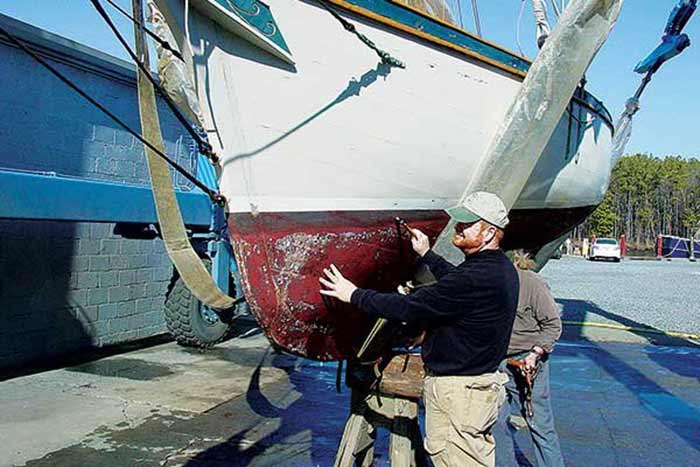
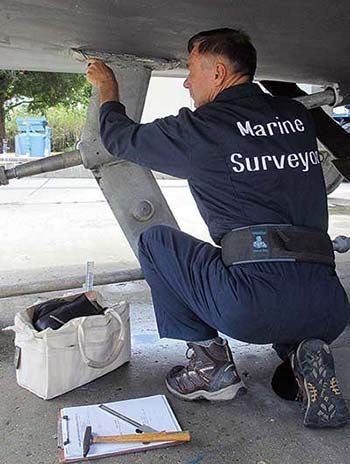
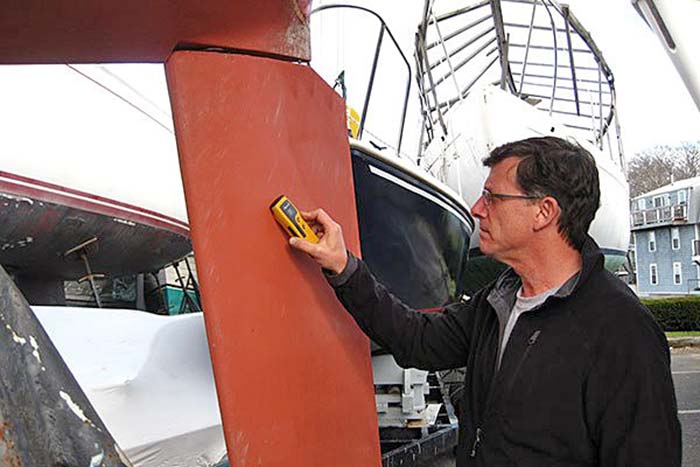


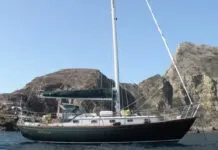
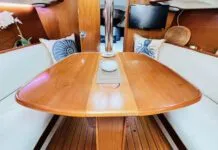
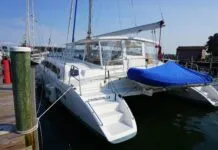
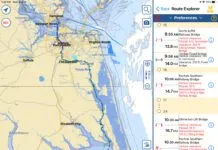
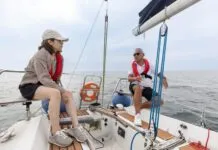

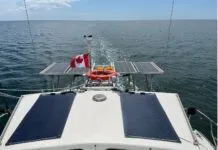

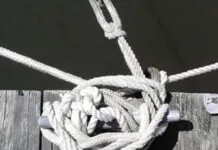

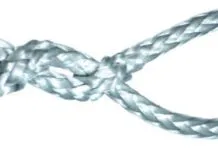
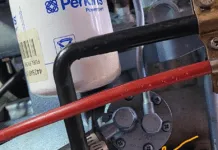
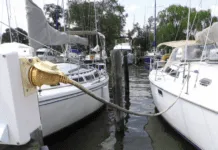
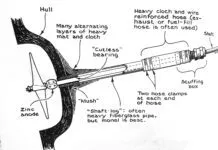
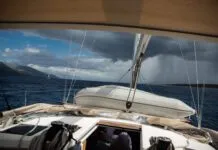
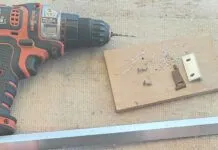
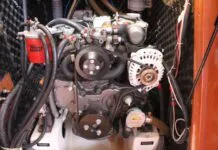
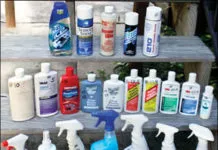
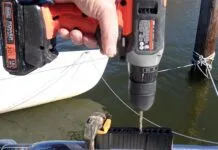
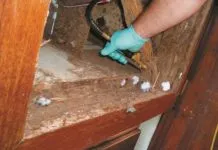


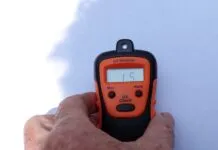


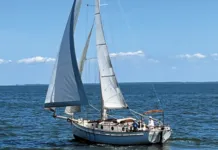




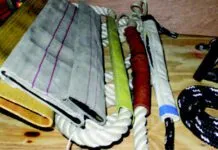

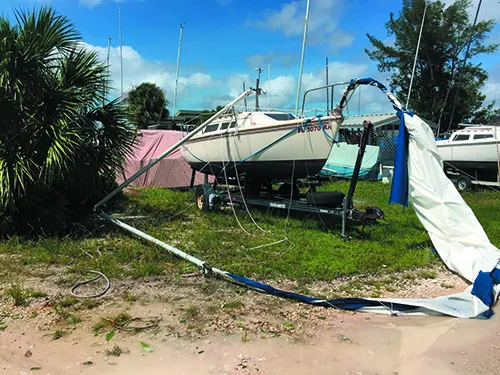

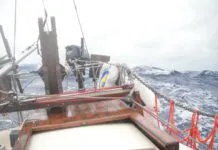




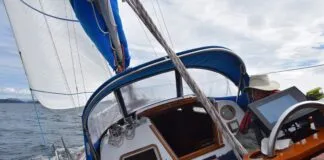












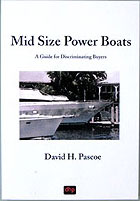




















IMAGES
COMMENTS
Location: somewhere in Mexico. Boat: 99 Island Packet 380. Posts: 203. Re: List of insurers that don't require a survey. State Farm didn't either for our old boats, which were on a lake. I doubt that any of your usual home/auto insurers will require a survey, but the actual marine insurance companies all will.
When it comes to boat insurance, Progressive boasts some of the broadest acceptability in the business. But there are some types of vessels that can't be added to a new or existing Progressive policy: Boats 0-10 years old and worth more than $500,000. Boats 11-20 years old and worth more than $350,000. Boats more than 20 years old and worth ...
The marine insurance leader for over 45 years. Find a Markel marine agent and get a free, no-obligation quote today. If you love your yacht, you'll love our insurance. We've been the yacht insurance leader for over 45 years because we provide coverages that fit your yacht and your lifestyle. Markel yacht insurance can offer distinct ...
Saving You Money with Liability-Only Insurance. For many small boat owners or owners of older vessels, liability coverage is the most important reason to insure their boat. This provides coverage for injury or damage to a third party. Our liability only policies also include medical coverage, which often offers higher limits than a homeowner ...
Get boat insurance without a survey. Online. We'll ask easy questions about you and your boat, then you can choose coverages. Get a boat insurance quote online. Call a rep. You'll speak with a licensed representative who will guide you through everything. Call 1-866-749-7436. Through an agent.
Boat and PWC policies are underwritten by GEICO Marine Insurance Company with administrative offices at 5323 Port Royal Road, Springfield, VA 22151. GEICO Marine Insurance Company is domiciled in Omaha, NE, and coverage is offered in all 50 states and the District of Columbia to boat owners with a U.S. address.
UPDATED June 2024 - Gallagher Skippers' Plan clients with boats under 30 feet in length that have a market value of under $50,000 no longer require a marine survey. Surveys will still be required as a requirement to keep Agreed Value Coverage, or if you have a Sea Doo jet boat. At anytime Aviva may request a marine survey for any vessel.
Boat insurance no survey: what it means and its implications "Boat Insurance No Survey" refers to policies issued without conducting a professional inspection, or survey, of your vessel's condition and value. Such come as extremely attractive, both for their convenience and savings on survey expenses.
Here are just a few coverage highlights: Boater Liability Coverage up to 1,000,000 Dollars. Agreed Value Paid on Total Loss, No Depreciation. All Risk Physical Damage Insurance *. Broad Navigation Area Allowances. Year-Round Boat Protection. Medical Payments Coverage. Plus Lots More. * subject to policy exclusions.
Yacht insurance is one of many types of boat insurance that we offer. Our unique Quick Quote feature provides marine insurance quotes in 90 seconds. Whether your vessel is a personal yacht, corporate yacht, or occasional charter, you should consider the benefits of a yacht insurance policy. While most states do not require yacht insurance by ...
No requirement for a survey; No excess on claims. Plus a key optional extra, if you need it. Cover for liability whilst towing water-skiers (on sports boats) Having basic boat liability insurance such as third party cover is often a requirement for using inland waterways, to launch your boat, or to keep it in a marina.
A guide to the best boat insurance providers of 2023, including Progressive (Best for Discounts), State Farm (Best for Rentals) and Foremost (Best insurance packages). ... To insure a used boat, underwriters may require a marine survey to determine the vessel's overall value and condition. The surveyor inspects the boat for any underlying ...
The BoatUS Marine Insurance Program will accept value surveys or pre-purchase surveys from surveyors with a SAMS designation of "AMS" with a specialized classification of "Y-SC" (yacht and small craft) or NAMS designation of "CMS" with a specialized service code of "A" (yacht and small craft). It's appropriate to ask the surveyor you select ...
Crew requirements can be modified. If the underwriter says you need a 4-person crew, resend your sailing resume and plea your case and experience. Explain how your vessel is set up for single-handing, or how you've sailed with a smaller crew in more challenging conditions. If it's compelling, they can make adjustments.
Boat: Tartan 3000. Posts: 357. Liability only insurance no survey required. I have a 1984 Tartan 3000, 30 ft monohull located in Huntington, NY. The value of this boat is 10k to 15k. For several years, 2016 - 2018 had a Geico / Boat US liability only insurance policy. This 1 million Liability policy was initially $75 rising to $87 in 2018.
Visit site. Mandarin331 said: Thanks for all the input, GJW and Nav & General both offered prices without survey due to size and value, however in the end the current owners' insurers agreed to keep insuring the boat without a survey so we'll go with that for the first year. That was a result.
Banks and insurance companies use the survey value to determine loan and insurance hull value amounts. This is also a great tool for price negotiations and can easily pay for the cost of the survey. A budget for repairs and maintenance. Nearly any boat will have some defects and deficiencies.
Boat US/ Geico marine no longer insures boats over 40 years old witch left me high and dry after having insurance through Boat US for over 25 years. Now I an stuck shopping for insurance and paying for a survey. When I got insurance through Boat US i was told if the decided the boat ever needed a survey in the future they would pay for it.
Most marine surveyors charge per foot of the boat, while others have a set amount based on the general size and model of the boat. Some surveyors will charge you just over £20 per foot. Generally speaking, a boat survey can cost anywhere from about £450 to over £700, total. That is why it is best to contact a few marine surveyors before ...
Wood or cold-molded wood construction. Maintained by a marina/yard with expertise in wooden yachts. Hull value greater than $75,000. Length greater than 26 feet. We offer coverage for wood and fiberglass hulls of all ages. If you are restoring your vessel, we can offer insurance ashore during the restoration period.
Online article for marine surveyors by David Pascoe, marine surveyor, NAMS-CMS. The insurance survey, Condition and Value survey or C&V as it is often referred to, is a type of survey intended for use by insurance companies for evaluating whether or not they wish to insure a particular vessel. For over 30 years surveyors have been providing this type of survey.
Oscar Seikaly, CEO of broker NSI Insurance Group, that provides yacht insurance, estimated the hull value at $40-70 million, but said P&I cover might not total more than $100 million.
The British-flagged 56-metre-long (184-foot-long) yacht, which the experts estimated cost around $40 million, capsized and went down on Aug. 19 within minutes of being hit by a pre-dawn storm ...